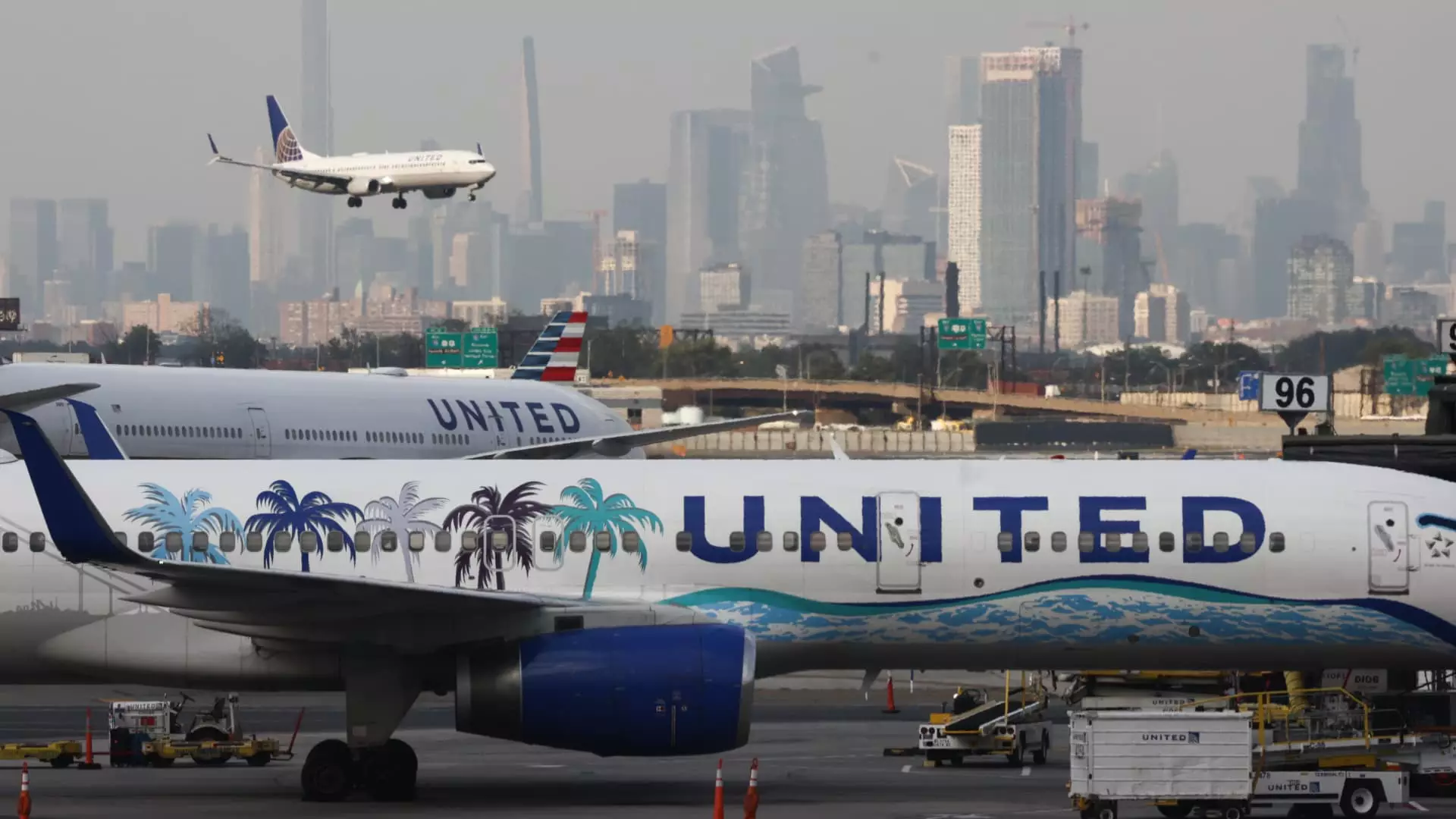As the travel industry seeks to reclaim its footing post-pandemic, United Airlines is not just tapping into conventional routes but is embarking on an ambitious international expansion program set for 2025. This forward-thinking initiative reflects a strategic shift aimed at attracting adventure-seekers and seasoned travelers who have become disenchanted with popular destinations. Instead of focusing solely on the well-trodden hotspots like Paris and Tokyo, United is venturing into new territories from Senegal to Mongolia, signaling a fresh approach to serving an evolving traveler demographic.
A New Era of Travel Choices
On May 21, travelers can expect a prospective non-stop connection between Newark, New Jersey, and Palermo, Sicily, laying the groundwork for a service that promises to enchant travelers with a flair for the Italian culture without the usual crowds of Rome. Additionally, on May 16, United plans to enhance its offerings with four weekly flights to Faro, located in the picturesque Algarve region of Portugal. June 7 will see the introduction of twice-weekly services to the breathtaking Madeira Island, while flights to Bilbao will commence on May 31, further expanding options in Spain and shaping a competitive advantage for travelers seeking unique experiences.
Senior Vice President of Global Network Planning and Alliances, Patrick Quayle, articulated this approach when he noted that many travelers have already experienced the major European cities countless times. As such, United’s exploration of less conventional destinations is a calculated strategy to attract a passenger base looking for novelty and adventure. The airline’s proactive mindset positions it distinctly among competitors that have largely maintained traditional route structures.
Charting a New Course in Global Markets
United’s admirable ambition extends beyond Europe; they are also preparing to enhance their services in Africa and Asia. Set to launch daily flights to Dakar, Senegal, from Washington Dulles Airport on May 23, United is keen to tap into the growing market for transcontinental travel. Meanwhile, a direct route from Tokyo to Ulaanbaatar, Mongolia, starting May 1, showcases the airline’s commitment to fostering stronger ties to emerging destinations. Additionally, the introduction of year-round nonstop flights to Koror in Palau signifies an increased presence in Pacific markets, appealing to travelers with diverse itineraries.
The decision to explore these routes illustrates United’s aim to diversify its portfolio significantly. The airline’s strategy is not without its risks, as evidenced by the recent discontinuation of the Bergen, Norway route due to insufficient demand. Nevertheless, Quayle projects confidence in United’s capability to adapt its offerings based on traveler preferences, with unique routes potentially enhancing traffic to its rewards programs.
“What makes United stand out,” Quayle emphasized, “is the unique and diverse content.” Every new route is an invitation to experience untapped cultural landscapes, thus fostering consumer interest and engagement. As travelers become increasingly inclined to explore off-the-beaten-path locations, United recognizes that a robust and varied flight schedule can effectively differentiate its brand from competitors. This strategy not only tantalizes the wanderlust of frequent flyers but also translates into potential revenue through premium offerings like credit card rewards and loyalty programs.
Moreover, the delay in launching the Faro service earlier this year, linked to a Federal Aviation Administration safety review, underscores the complexities involved in launching new routes. United’s patience and compliance with regulatory requirements reflect the airline’s commitment to safety while expanding its global reach.
As United Airlines forges ahead with its ambitious international expansion strategy, the focus on lesser-known, culturally rich destinations could redefine consumer expectations for air travel. By favoring diversification and exploration, United positions itself to cater to the evolving desires of modern travelers. In an era where the common journey is no longer enough, the airline is effectively bridging the gap between adventure-seeking travelers and unexplored locales, thereby shaping the future of flight experiences.
Ultimately, while the road ahead presents its challenges, United’s strategic vision to carve out unique pathways for exploration could herald a transformative era in air travel, promising to take travelers not just from one place to another, but into realms of excitement, discovery, and immersive experiences that transcend conventional travel norms.

